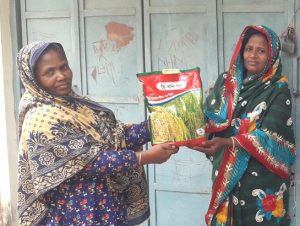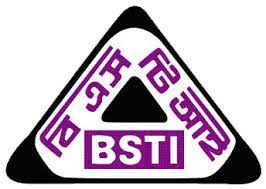Danielle Nierenberg
I’ve spent the past five and a half weeks interviewing global and domestic food and agriculture experts about COVID-19. They’ve made me cry more than once, they’ve definitely made me laugh, and—more than anything—they have inspired me. At Food Tank, we’ve documented the ways the pandemic has changed the lives of farmers, grocery store workers, those going hungry, and more. It’s affecting everything from food prices to local governance. At the same time, restaurants are giving back to their communities by becoming community kitchens. Organizations around the world are donating money, food, and volunteer hours to help those most affected.
In a difficult time for all of us, I’m heartened to see beacons of hope coming from some of the hardest-hit parts of our food system. On Food Talk Live, I have been fortunate to be able to talk to advocates, chefs, farmers, policymakers, and other stakeholders—including some of my personal food heroes—about how they’re working to build more equitable, just, sustainable food chains during COVID-19.
This week, Food Tank is highlighting 10 conversations from our daily Food Talk Live series that help outline a path forward for our food system: Caesaré Assad, CEO of Food System 6, on the entrepreneurs moving the food system forward; Dan Barber of Blue Hill at Stone Barns on why we can’t go back to the pre-COVID food system; Dan Glickman, former Secretary of Agriculture, on how better diets can flatten the curve; Daniel Katz of the Overbrook Foundation on voting out “broken systems”; Karen Washington of Rise and Root Farm on the need for community advocacy for food justice; Kathleen Finlay, President of the Glynwood Center, on the resilience of regional farms during COVID-19; Martha Archer of Mill City Farmers Markets on how farmers markets are staying open during COVID-19; Maximo Torero of the UN Food and Agriculture Organization on strengthening global supply chains; Ronnie Cummins of the Organic Consumers Association on a Green New Deal for regenerative ag; and Saru Jayaraman of One Fair Wage on the vulnerability of service-industry jobs during COVID-19.
Contributing Author: Jared Kaufman
Each weekday during the COVID-19 pandemic, food and agriculture expert guests are joining Food Talk Live for discussions on some of the most pressing issues in the food system.
Our live conversations have focused on the resiliency of regional farmers, the importance of speaking out for food justice, and the need to improve wages and working conditions for farmworkers and restaurant staff, in addition to many other topics.
Times are hard for many people in our food system, from farmers to grocery store workers to those going hungry. At the same time, the chefs, farmers and growers, entrepreneurs, and advocates who power our food system are working hard to imagine and create a post-COVID food system that’s more sustainable and more equitable and that leaves no one behind.
Food Tank is highlighting 10 conversations from our daily Food Talk Live series that outline a hopeful and inspiring way forward for our global food system.
1. Caesaré Assad, CEO of Food System 6, on the entrepreneurs moving the food system forward
Before becoming the CEO of Food System 6 (FS6), Caesaré Assad worked across the food system as a cook, entrepreneur, and business consultant. Now, she leads FS6, a nonprofit accelerator for food entrepreneurs that focus on healthy ecosystems and farmers. “We have this really beautiful rich, diverse country where we can produce and we can create so much wealth for all of us, and it’s now about zooming in and resourcing these gaps that we know exist,” Assad says. In this conversation, she shares stories of entrepreneurs and inventors moving away from extractive practices and toward more holistic agriculture.
2. Dan Barber of Blue Hill at Stone Barns on why we can’t go back to the pre-COVID food system
Dan Barber, a James Beard award-winning chef and acclaimed sustainable food advocate, describes the weaknesses COVID-19 has exposed in our food system—including in the farm-to-table movement. “I don’t know that the answer of circling out of this is to return to that moment, because what this shows is that [farm-to-table] wasn’t as strong in conception of feeding people and a food system moving forward as we would’ve imagined,” he says. During COVID-19, he launched a food box program at Blue Hill at Stone Barns, called resourcED, which donates and sells prepared pantry items, produce from local farmers, and meat products. In this conversation, he says that perhaps what we need is actually more artisanal food processors—cheesemakers, fermenters, meat-curers—to add value and nutrition to our food.
3. Dan Glickman, former Secretary of Agriculture, on how better diets can flatten the curve
Dan Glickman served as the U.S. Secretary of Agriculture from 1995 to 2001, and currently is a vice president of the Aspen Institute. Secretary Glickman has written in major media about the ways certain foods and nutrients—fruits, vegetables, vitamins C and D, zinc—can be preventative and boost our immune systems. In this engaging and detailed conversation, he analyzes the impact of COVID-19 on the food supply chain, explains how better nutrition can help flatten the curve of the pandemic and outlines a better food system to mitigate the effects of future pandemics.
4. Daniel Katz of the Overbrook Foundation on voting out “broken systems”
During self-isolation, Daniel Katz has found himself eating much more pasta than he normally does. This is not ideal, he says, because we all need to take this time to improve our health and well-being as individuals, so we can better manage communal shocks like COVID-19. Katz is the vice president and senior program director at The Overbrook Foundation and is also the co-founder and board chair of the Rainforest Alliance. After COVID-19, we need to repair the “broken systems” that have made farm workers and food system labour invisible, he says. This means voting for candidates who prioritize planetary health. “If we want to rebuild a world that is greener and healthier and safer, it’s going to start with having an administration that shares that same vision,” he says.
5. Karen Washington of Rise and Root Farm on the need for community advocacy for food justice
Called “urban farming’s de facto godmother,” Karen Washington has spent decades advocating for food justice and community gardening. Now, she leads Rise & Root Farm in New York. On Food Talk Live, she said COVID-19 is hitting farmers of colour particularly hard—and the way forward is not politics as usual, but coming together for systemic change. “We’re all suffering,” she told me. “But at the end of the day, folks, what makes us strong is our belief in one another, that we will come together to help one another get back on our feet.”
6. Kathleen Finlay, President of the Glynwood Center, on the resilience of regional farms during COVID-19
Kathleen Finlay, the president of the Glynwood Center for Regional Food and Farming, works to support farmers in exchanging resources, sharing knowledge, and helping one another in getting crops to market. During COVID-19, Glynwood has been focused on solving farmers’ distribution challenges as wholesale purchases slow. Finlay says Glynwood has also helped create a phone tree directory, so if a farmer were to get sick they would be able to call upon other growers for support and resources.
7. Martha Archer of Mill City Farmers Markets on how farmers markets are staying open during COVID-19
As the executive director of Mill City Farmers Markets, Martha Archer works to connect local and organic farmers with consumers in Minneapolis, Minnesota. During COVID-19, as an officially designated essential business, Mill City Farmers Markets has launched a drive-through market. This allows them to continue to support vendors while practicing what Archer calls “physical distancing.” Farmers markets across the country are working together to figure out what a new model will look like. “How do we move customers through quickly and safely, and change what markets have been, which is a place to congregate and socialize?” Archer asks.
8. Maximo Torero of the UN Food and Agriculture Organization on strengthening global supply chains
Maximo Torero, the chief economist for the United Nations’ Food and Agriculture Organization (FAO), joins Food Talk Live from his self-isolation in Rome. The issues posed by COVID-19 are different from the food shocks in 2007-2008 when food prices were significantly affected by scarcity. This year, Torero says, food stocks are high and harvests have been bountiful. Instead, obstacles are logistical—export restrictions, quotas, and lockdowns are making it difficult to move food from producer to consumer. In this detailed conversation, Torero walks us through global supply chains to explain why countries around the world must resist the urge to panic.
9. Ronnie Cummins of the Organic Consumers Association on a Green New Deal for regenerative agriculture
As the executive director and co-founder of the Organic Consumers Association, Ronnie Cummins has been researching and advocating for organic growing for decades. He argues that regenerative agriculture needs to become the norm—farming that goes beyond simply restoration, but that truly makes the soil quality better. But it cannot be prohibitively expensive, he warns: “We need to realize that economic justice and the growth of organic and regenerative food and farming and land use go together. We can’t have one without the other. That’s what’s so beautiful about this Green New Deal.”
10. Saru Jayaraman of One Fair Wage on the vulnerability of service-industry jobs during COVID-19
As the president of One Fair Wage, Saru Jayaraman advocates on behalf of workers across the service and food industries. One Fair Wage calls for an elimination of the tipped minimum wage, which allows employers to pay tipped employees less than the federally mandated minimum. On Food Talk Live, she described how food-service workers are being placed in an especially tough spot by COVID-19. A majority of those who have been laid off—including undocumented food workers, those who have been in jobs for a short time, or people who rely on several different jobs—are unable to access unemployment benefits.
(Danielle Nierenberg is President, Food Tank and can be contacted at danielle@foodtank.com)




